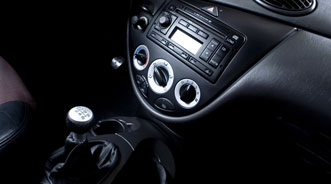In-Vehicle Connectivity Market Set for ‘Unprecedented’ Growth; Potential for Fully Autonomous Cars

With vehicle technology advancing at such a fast rate, is it such a far-fetched idea that cars will one day drive themselves?
Many companies are already researching and investing in that "idea," and consumers are beginning to expect a higher level of vehicle connectivity in their vehicles. And the market for in-vehicle technology is expected to grow at a significant rate in the next few years, according to a recent study from industry analysis website just-auto.com.
As mobile usage continues to grow, shoppers are becoming more interested in the integration of smart portable devices, applications software and embedded in-car mobility services.
In the site’s most recent management briefing, officials noted, “The demand for vehicle connectivity has allowed manufactures to personalize the in-car experience and further strengthen their competitive position.”
ABI Research also touched on the growth of this segment within the industry, stressing that “ultimately, all connectivity options will be required to make the goal of 100-percent safe and automated driving a reality.
“In this way boundaries between disciplines which have long been isolated ecosystems are starting to blur as more holistic views, approaches, and strategies are being adopted, largely driven by business case challenges and budget constraints following the 2009 economic recession,” the company continued.
The just-auto site also noted that as the market for in-car connectivity technology continues to expand, OEMs are beginning to form more in-depth relationships with smartphone and software suppliers.
“Incrementally and organically using and adding technology as it becomes available continuously, improving the performance, and reliability of intelligent transportation systems will be an important paradigm,” officials added, stressing the importance of this evolving technology to dealers, software providers and OEMS alike.
Citing a recent interview, just-auto shared that Sanjay Ravi — worldwide managing director, automotive, industrial & aerospace, and hightech & electronics industry at Microsoft Corp. — explained a shift in the traditional supply-chain relationships caused by the sudden demand for in-car connectivity.
When asked how important connected vehicles are for Microsoft, Ravi responded with: "the global connected vehicle market is a key part of Microsoft’s business portfolio moving forward."
Just-auto added: “As traditional Tier 1 suppliers struggle to operate in such an environment, vehicle manufacturers and their software developers are forming working alliances with handset/smartphone suppliers and wireless carriers.
“In addition, telematics service suppliers are seeking to partner up with wire carriers and cloud service providers,” it continued, describing Ford as the ‘pioneers’ in this supply-chain shift.
To view the full briefing, see here.
A Possibilty: Cars That Drive Themselves
And in another area of vehicle technology that is making headway, audit, tax and advisory firm KMPG and the Center for Automotive Research contend that “autonomous cars may dramatically reshape the competitive landscape, human interaction with vehicles and the future design of roads and cities — and they may be sooner than you think”
Will cars one day be able to drive themselves?
The companies’ report, titled “Self-Driving Car: The Next Revolution,” stresses that the industry is on the “cusp’ of revolutionary change.
"For the past 100 years, the automotive industry has been a force for innovation and economic growth," said Gary Silberg, national automotive industry leader for KPMG and co-author of the report.
"Now the pace of innovation is speeding up and the industry is on the brink of a new technological revolution with ‘self-driving’ vehicles. If they become a mainstream reality, it would be profoundly disruptive to the automotive ecosystem and may have far-reaching implications for the traditional automotive value chain and beyond,” he continued.
And the companies stress that with the emergence of more autonomous cars, numerous social problems could be solved or lessened, including, “the high cost of traffic crashes and transportation infrastructure, the millions of hours wasted in traffic jams and the wasted urban space given over to parking lots, just to name a few.”
In the report, KPMG and CAR present the hypotheses on how self-driving vehicle technology could unfold and its potential impacts, with an emphasis on the convergence of sensor-based and communication-based vehicle technologies, officials explained.
The companies predict that the “convergence of sensor-based and connected vehicle technologies will happen and will have a positive effect on the adoption of both systems.”
And they also noted that automotive and technology companies are already exploring and investing in connected and autonomous technologies and applications.
“While there is no clear leader, companies are trying to figure out how to compete and collaborate at the same time. Over the longer term, the evolution of these advancements will cause a rebalancing of the automotive value chain, with nontraditional firms playing a more significant role,” officials shared.
Richard Wallace, director, transportation systems analysis at CAR and co-author of the report, chimed in, noting, "For those who embrace innovation and opt to lead rather than follow, a new frontier is opening in the realm of mobility services.
"Some may ask if it is still just science fiction or if the market will accept them and pay for them. We think the answer is a resounding yes — the marketplace will not merely accept self-driving vehicles, it will be the engine pulling the auto industry forward."
KPMG’s Silberg concluded, "Like many of the industry leaders, academics, and policy makers interviewed, we believe the age of the self-driving vehicle is coming. But getting there will require that many pieces of a large puzzle fit together. When and how that will happen remain open questions.”
To view the whole report, see here.

 View The Latest Edition
View The Latest Edition

